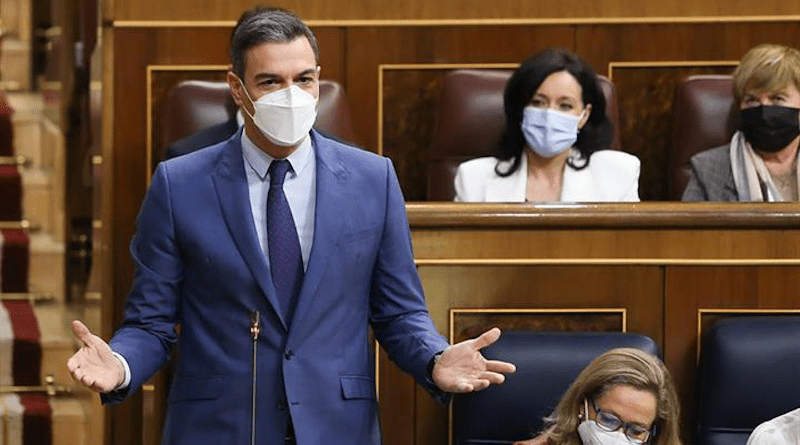PM Sánchez Says ‘Spain And Europe Will Come Out Ahead’ Thanks To Solidarity In Face Of War And Pandemics
Prime Minister Pedro Sánchez said in Spain’s Lower House of Parliament that the Government is aware of the “uncertainty” affecting families and small and medium-sized companies. In addition, he called for the support of the parliamentary groups for the National Plan to respond to the economic and social impact of the war.
In the control session held in the Lower House of Parliament, Pedro Sánchez stressed that the Government “takes charge” of the difficulties that, as in the rest of Europe, families and SMEs are going through because of the war in Ukraine and the COVID-19 pandemic.
The Government is in dialogue with the parliamentary groups, social partners, regional governments and the most affected sectors, and has already responded to the consequences of the Ukrainian invasion with a National Plan that it hopes will be validated by a “very large majority” of the Legislative Chamber. This set of measures – he pointed out in his reply to Concepción Gamarra, of the People’s Parliamentary Group – is a demonstration that the Government is protecting the middle and working classes instead of cutting the welfare state, laying off health professionals or approving tax amnesties.
The prime minister expressed his conviction that, despite the complexity of the situation, “Spain and Europe will move forwards thanks to the determination, solidarity and united effort that the Government will deploy”.
Citizens’ claim
Pedro Sánchez, replying to Carlos García, a member of the Joint Parliamentary Group, argued that this is the attitude of unity that citizens are demanding in the face of the pandemic and Vladimir Putin’s war. “This is a coalition Government, we are two political groupings with different sensibilities, but we are united by the fundamental thing: to give a determined response, with maximum unity and solidarity,” he said.
Furthermore, he defended that the Government is working to combat the “uncertainty” and “anxiety” caused by the Russian invasion with the same will with which it confronted the pandemic over the last two years.
“We are the Government that has approved the ERTEs, the ICOs, the social shield, the European funds, that is right now implementing a modernisation agenda and that agreed with the social partners on labour reform,” Sánchez told the Plenary.
Follow-up on the situation of journalist Pablo Gonzalez
With regard to the arrest in Poland of the journalist Pablo González, an issue raised by Mertxe Aizpurua, of the Euskal Herria Bildu Parliamentary Group, Sánchez assured that the Minister for Foreign Affairs, José María Albares, has had several contacts with his Polish counterpart and with the ambassador in Warsaw on the matter.
Both the Embassy and the Ministry have conveyed to the Polish authorities the need to guarantee consular assistance to the detainee, including the right to consular visits and the right to be assisted by a lawyer. “In relation to this issue, he was assigned a public defender, but Mr González, according to the minister, legitimately preferred to have two lawyers of his choice, one Polish and the other Spanish”, explained Sánchez, who also indicated that the journalist has received two consular visits, the last one last Friday.
The head of the Executive added that there are aspects of the case that cannot be revealed because the detainee himself has indicated this and because “his presumption of innocence is at stake, which the Government of Spain respects”.
The Government will continue paying attention to the evolution of the judicial proceedings, “as we do with all Spanish people who are detained in a foreign country”, said Sánchez, who recalled that his Government has always been in favour of strengthening the rule of law in the European Union as a whole.

